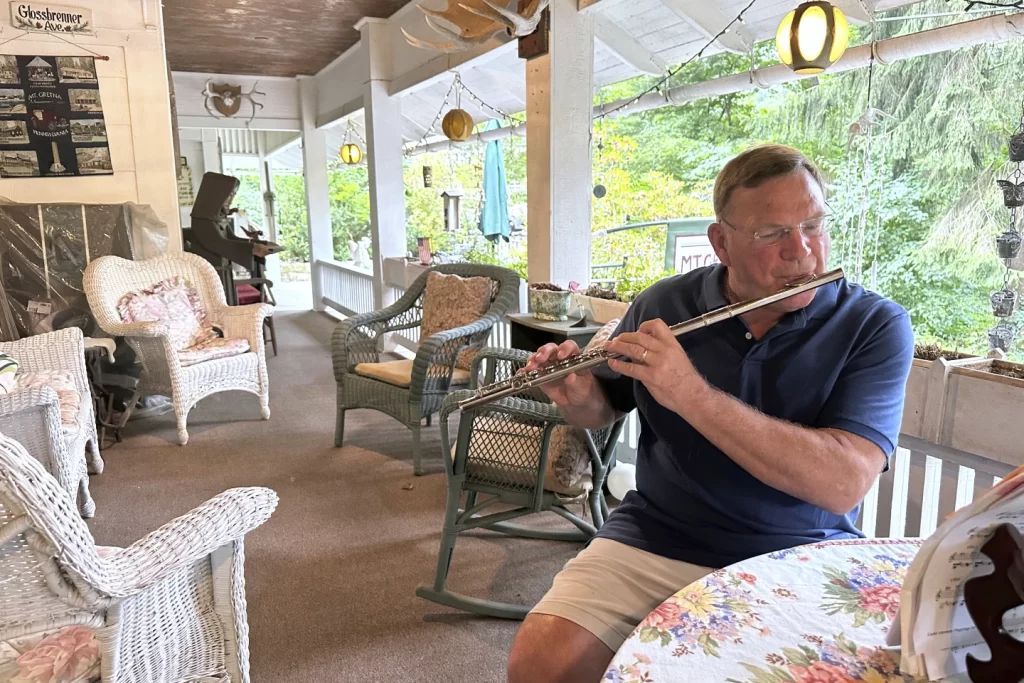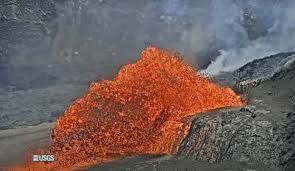
MOUNT GRETNA, Pa. — It takes a 54-page pamphlet to list all the classes, concerts, outdoor recreation and other self-improvement and entertainment going on at the Pennsylvania Chautauqua in Mount Gretna this summer.
The area springs to life every June, July and August, when a year-round population of about 1,000 more than doubles and thousands more crowd in for big events. The picturesque front porches that define the town are abuzz with energetic cottagers who punctuate their days with cooking lessons, nature walks, yoga, professorial lectures, music and plays.
In short, it’s kind of a summer camp for the sort of people who want to fit in a lecture on the Marquis de Lafayette between a bird watching walk and a bluegrass duo performance on a random July day.
“Some people don’t last, but most of the people who understand it, love it,” said Bonnie Harvey, who has lived full-time in Mount Gretna since she and her husband, Dave, sold a bed-and-breakfast inn in a nearby town. “If you’re bored, it’s your own fault.”
As many quirks as people
Summertime get-togethers known as Chautauquas were practically a craze more than a century ago. A program for Christian Sunday school teachers along Lake Chautauqua in New York soon became a movement, energized by early alcohol prohibitionists, book club reading circles and a demand for scientific and literary awareness. Eventually they brought education, entertainment and a dose of religion to communities across the Northeast and Great Lakes, into Canada and beyond.
What they all had in common, said Jon Schmitz, an archivist and historian at the original Chautauqua Institution in Chautauqua, New York, was “the good use of leisure time.”
Traveling “tent” Chautauquas soon developed, and by one account the programs reached millions of people before the movement peaked in 1907 and largely died out as priorities changed during the Great Depression.
Although the great majority of the Chautauquas are long gone, Mount Gretna got a second wind in the 1970s with the establishment of a successful art show and a highly regarded chamber music and jazz concert series. Now listed on the National Register of Historic Places, it’s been thriving ever since.
These days, Mount Gretna can seem to have as many quirks as it does people. Described as “Culture Gulch” by a newspaper decades ago, the mountainous, wooded terrain about 84 miles (135 kilometers) west of Philadelphia includes some 200 privately owned cottages, most of them maintained to look just as they did in the early 1900s. But it isn’t some private club — while some of the cottages are kept within families for generations, others are bought and sold, and a small percentage are available for rent under restrictive local regulations.
“When most people call and say, ‘I’m interested in buying a house,’ one of the first things I say is, ‘How patient are you?’ Sometimes it can take a week, sometimes it can take years to find the right one,” said real estate agent Michelle Shay, who lives in Mount Gretna. “Some of them are 100-year-old cottages built on tree stumps. You have to be really aware of what you’re buying.”




